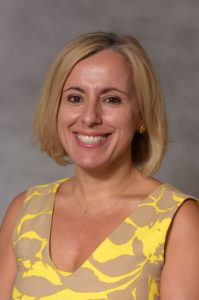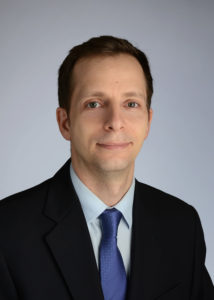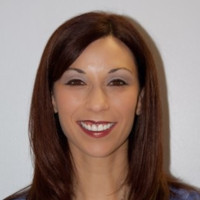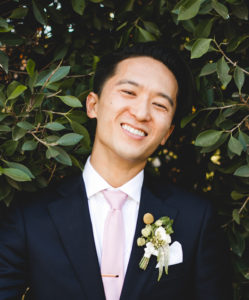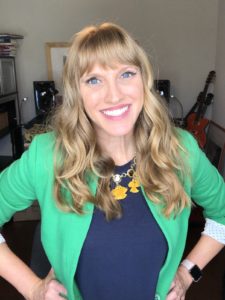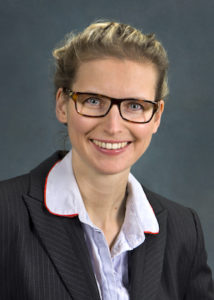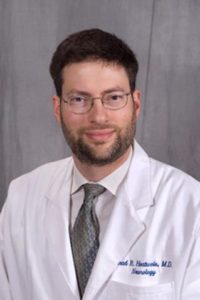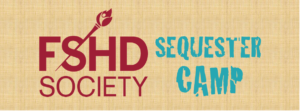 Your health and well-being are our highest priority. Many of you already felt isolated by FSHD, and with COVID-19 it became even harder to get out, or for others to visit. The fragile webs of support you built to help you get by were being shredded. In March of 2020, we started "Sequester Camp" to help reinforce the bonds of community. This was a time to reach out, connect. Seek assistance if you needed it. Offer to help others, because you have a lifetime or experience and have figured out how to navigate difficult circumstances. We helped one another get through this crisis, and our success has led to the creation of FSHD University, where we will continue to serve you.
Your health and well-being are our highest priority. Many of you already felt isolated by FSHD, and with COVID-19 it became even harder to get out, or for others to visit. The fragile webs of support you built to help you get by were being shredded. In March of 2020, we started "Sequester Camp" to help reinforce the bonds of community. This was a time to reach out, connect. Seek assistance if you needed it. Offer to help others, because you have a lifetime or experience and have figured out how to navigate difficult circumstances. We helped one another get through this crisis, and our success has led to the creation of FSHD University, where we will continue to serve you.
Camp is closed. But classes are in session at FSHD University!
You can read and view our past programs below.
Telemedicine for FSHD is now available from many Clinical Trial Research Network sites. We've listed their appointment contact information on this post.
Reliable sources of information
Centers for Disease Control News Updates and Resources
The World Health Organization's Q&A on coronaviruses
National Institutes of Health Covid-19 News Updates
This Johns Hopkins site tracks global COVID-19 statistics.
CovidActNow provides state-by-state models of project numbers of cases.
Additional news updates of interest:
- COVID-19: How much protection do face masks offer? This Mayo Clinic article notes that "Asking everyone to wear cloth masks can help reduce the spread of the coronavirus by people who have COVID-19 but don't realize it. And countries that required face masks, testing, isolation and social distancing early in the pandemic seem to have had some success slowing the spread of the virus.
- Early peek at data on Gilead coronavirus drug suggests patients are responding to treatment. A preliminary report from a clinical trial site at the University of Chicago shows promising results. "In scientific terms, all the data are anecdotal until the full trial reads out, meaning that they should not be used to draw final conclusions."
- Obesity Linked to Severe Coronavirus Disease, Especially for Younger Patients. "Though people with obesity frequently have other medical problems, the new studies point to the condition in and of itself as the most significant risk factor, after only older age, for being hospitalized with Covid-19, the illness caused by the coronavirus. Young adults with obesity appear to be at particular risk, studies show. The research is preliminary, and not peer reviewed, but it buttresses anecdotal reports from doctors who say they have been struck by how many seriously ill younger patients of theirs with obesity are otherwise healthy."
- Update on hydroxychloroquine: Fact-check by the New York Times. Test-tube findings often do not work in patients. The initial small study in France did not meet peer-review standards. Studies in China were uncontrolled or not blinded. A nationwide trial began on April 2 in the United States; it is to enroll 510 patients at 44 medical centers. Like every drug, it can have side effects. It is not safe for people who have abnormalities in their heart rhythms, eye problems involving the retina, or liver or kidney disease.
- The evidence for everyone wearing masks, explained. There is some evidence that the public should wear masks. But let doctors and nurses get them first. This Vox article does an excellent job of explaining a topic that has been reported in a confusing way.
- The Coronavirus Patients Betrayed by Their Own Immune Systems. This hypothesis suggests that drugs used to tamp down immune response (including treatments for autoimmune disease) are candidates for covid-19 treatment. Again, don’t self-medicate! These are potent drugs with potentially dangerous side-effects.
- Malaria Drug Helps Virus Patients Improve, in Small Study. Caveats: the study was in mildly affected patients and was not peer-reviewed. People should not be self-medicating! Drugs should be taken only under medical supervision. Stockpiling is already leading to shortages for people who need to medication to treat their medical conditions.
- Wuhan Data Link COVID-19 With Damage to Heart Muscles. In this case series study of 187 patients with COVID-19, 27.8% of patients had myocardial injury, which resulted in cardiac dysfunction and arrhythmias. Myocardial injury has a significant association with fatal outcome of COVID-19, while the prognosis of patients with underlying CVD but without myocardial injury were relatively favorable. (JAMA)
- No drug has yet been shown in a randomized clinical trial to be effective in treating covid-19. Several drugs that are on the market for other indications are currently in trials. Do not self-medicate as these drugs can have serious side-effects. Consult your doctor. (CDC website).
- A Phoenix-area man is dead and his wife is under critical care after the two took chloroquine phosphate in an apparent attempt to self-medicate for the novel coronavirus, according to hospital system Banner Health. It does not appear they took the pharmaceutical version of the drug, but rather "an additive commonly used at aquariums to clean fish tanks," Banner Health said in a statement. (CNN).
- Experts say there’s no clear evidence that ibuprofen makes COVID-19 worse. (Healthline).
- A report in the American Journal of Gastroenterology says around half of covid-19 cases in China presented with GI symptoms (diarrhea). So if you have GI symptoms along with other symptoms (dry cough, impaired breathing, fever), don't rule out covid-19.
- Lost Sense of Smell May Be Peculiar Clue to Coronavirus Infection. But evidence is preliminary. (NY Times).
- SCAM WARNING: Scammers are targeting people with emails and telemarketing calls offering #coronavirus tests, masks and other items in exchange for Medicare numbers. DON'T FALL FOR IT! (WBZ News).
Our webinar speaker this week is Dr. Rita Perlingeiro, Associate Professor of Medicine within the Lillehei Heart Institute at the University of Minnesota. Her primary research interests include understanding the molecular mechanisms controlling lineage-specific differentiation of pluripotent stem cells, and applying this information to efficiently generate tissue-specific stem/progenitor cells endowed with in vivo regenerative potential. Her work has potential applications in muscular dystrophy research and future therapies.
She has received several awards and honors and has served as an expert reviewer and publisher for several journals. She received her PhD from the University of Campinas (UNICAMP, Sao Paulo, Brazil), in which she studied erythroid progenitor cell biology in the context of sickle cell disease. Following, Dr. Perlingeiro moved to Boston, where she did her postdoctoral training at the Whitehead Institute/MIT in the laboratory of Dr. George Daley, focusing on the generation of hematopoietic stem/progenitor cells from pluripotent stem cells.
Our presenter today is Constantine Farmakidis, MD, from the University of Kansas Medical Center. Dr. Farmakidis will discuss strategies for maximizing home safety, fitness and independence for patients with FSHD. His presentation will be followed by a period of questions and answers. This topic that may be of particular interest in the context of the Covid-19 pandemic when most are spending extended periods of time at home.
Dr. Framakidis earned his medical degree and completed his neurology residency training at the University of Rochester School of Medicine and Dentistry. He subsequently completed his clinical neurophysiology and electromyography fellowship at Columbia University Medical Center.
After 6 years on the faculty at the Albert Einstein College of Medicine in New York City, Dr. Farmakidis joined the neuromuscular division at the University of Kansas Medical Center in 2017. There he has focused on working with patients with hereditary neuromuscular diseases such as FSHD in the Muscular Dystrophy Association clinic a well as patients with myasthenia gravis.
Join us this week for a webinar on a new genetic test for FSHD. This new technology significantly reduces the cost while improving the data provided by testing. What are the implications for patients and families? For research?
Our speaker, Alka Chaubey, PhD, FACMG, is currently the Head of Cytogenomics at PerkinElmer Genomics. She is double board certified in clinical cytogenetics/genomics and clinical molecular genetics/genomics. In her current role, Dr. Chaubey has led the successful development and launch of several innovative products including the CNGnome test and a new FSHD assay utilizing Whole Genome Optical Mapping. Dr. Chaubey originally received her PhD from Guru Nanak Dev University, Amritsar, India, and completed her post-doctoral studies at Center for Cellular and Molecular Biology (CCMB), Hyderabad, India and University of Illinois at Chicago (UIC).
This week, join our webinar with Michelle Mellion, MD, a senior medical director working on therapies for rare neuromuscular diseases at Fulcrum Therapeutics. Many of you volunteered for a study in 2018 and early 2019 to help Fulcrum study various methods to track the progression of muscle degeneration. This was a vitally important study to help the company design the current ReDUX4 clinical trial of the first compound to target the root genetic cause of FSHD. We’re delighted that Fulcrum is reporting back to our community about what they learned from your invaluable participation! Read more here.
Our speaker is Naoya “Nick” Ogura from Re+Active Physical Therapy and his topic is “Getting more sleep during restless times.”
A good night’s sleep is so important for feeling our best, but it can be one of the first things that gets thrown off when there are disruptions to our lives. Although medication can play a crucial role in improving sleep, there are things you can start doing to improve your sleep quality. In this workshop, you’ll learn about the science of sleep and some practical tips on how you can get more rest despite the uncertain times we are going through. Dr. Ogura received his doctorate in occupational therapy at University of Southern California, focusing on lifestyle interventions for chronic conditions. As a lifestyle specialist, his specialty is helping people maintain healthy routines in eating, sleep, exercise, and stress management to optimize their health. He enjoys training people in mindfulness and sleep strategies, as he believes a well-rested brain and body is fundamental to wellness.
Here's a note Dr. Ogura sent after the webinar
Option 1: Has a video to demonstrate how to set up the pillow: https://amzn.to/2AxIDmlOption 2: https://amzn.to/2T8RnFJOption 3: Gel-type adjustable pillow, better for people who tend to get hot. https://amzn.to/3619nag
P.S. Julie Hershberg and I are launching a 4-week short course on sleep hygiene in mid to late June! If you are interested in attending, just shoot us an email and we'll keep you in the loop.
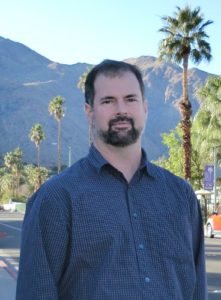
Join us this week for a webinar on “Exploring the National Registry for FSHD with Artificial Intelligence” given by Jeffrey Statland, MD and John Hogan, Principal Engineer, AIBytes, LLC. The National Registry for FSHD collects and tracks clinical information of how symptoms change over time in patients. In this session, we will describe how we are using Artificial Intelligence to search for patterns of information in the Registry which otherwise would be hidden. We are especially searching for patterns which may indicate how fast FSHD progresses in patients.
John Hogan has over 20 years’ experience in technology development at IBM where he held various management and technical positions including Chief of Staff for the Watson AI division. Currently, John is the Founder and Principal Engineer of AIbytes, a specialty AI consulting firm, based in the beautiful Hudson Valley of New York.
Jeffrey Statland, MD, is co-director of the FSHD Clinical Trial Research Network and assistant professor of neurology at the University of Kansas Medical Center. He is co-principal investigator of ReSOLVE, a large, ongoing, clinical outcomes study for FSHD, and has also conducted extensive research on the FSHD national registry.
Join us this week for a webinar on "Staying active while at home: Physical therapy advice for exercise and FSHD," given by Julie Hershberg, PT, DPT, NCS.
Slides from the webinar: J Hershberg FSHD Staying Active at Home (Download pdf)
Dr. Hershberg is a neurologic physical therapist, founder and owner of re+active physical therapy & wellness and adjunct instructor of clinical physical therapy at the University of Southern California. Current clinical interests include evaluation and treatment of patients with neurologic disorders including FSHD, movement disorders and other chronic diseases. She has special interest in facilitating exercise and wellness in order to optimize outcomes and quality of life for people with neurologic disorders. Her background includes completion of the neurologic residency program at USC and Rancho Los Amigos National Rehabilitation Center in 2003 and becoming a board certified neurologic clinical specialist in 2005 with recertification in 2015. She founded the Schmidt Movement Disorders Fellowship for physical therapists at re+active in 2016. She received the 2019 Academy of Neurologic Physical Therapy Clinician of the Year award.
Dr. Hershberg has worked with many clients who have FSH muscular dystrophy and teaches courses in physical therapy for FSHD patients. She has spoken at our Los Angeles Family Day conference and we're always impressed by her knowledge and dedication to patients. We're excited to have her share advice about how you can continue to exercise safely while sequestered at home.
Resources from Dr. Hershberg's webinar
Free Nordic Pole Walking instructional videos:
- Urban Poling: https://urbanpoling.com/getting-started/
- PWR!Moves Poles: https://www.youtube.com/watch?v=rR4wlWZThf8
Favorite exercise videos:
- Favorite seated exercise video: https://www.youtube.com/watch?v=z7zTWzOMJc8
- Favorite tai chi exercise video: https://www.youtube.com/watch?v=21-HARM-E4g
- Sitting tai chi: https://www.youtube.com/watch?v=_lKO03x_5OU
This week's webinar focuses on an important research study called FSHD-PRISM. When evaluating therapeutic effects of drugs, or how a disease changes over time, it is important to include the patient’s experience and perspective. In this webinar, Drs. Johanna Hamel and Chad Heatwole will talk about a method to measure the patient’s experience. They will show results of a study evaluating symptoms of 328 people with FSHD who provided answers about their disease via questionnaires. The data provides information on how common a symptom is experienced, and how much it affects people’s lives. They will also discuss the relationship between the presence of pain or unemployment and the frequency and impact of symptoms in people with FSHD.
Reference: Patient-Reported Symptoms in Facioscapulohumeral Muscular Dystrophy (PRISM-FSHD). Hamel J, Johnson N, Tawil R, Martens WB, Dilek N, McDermott MP, Heatwole C. Neurology. 2019 Sep 17;93(12):e1180-e1192. doi: 10.1212/WNL.0000000000008123. Epub 2019 Aug 13.Abstract. Full article (PDF). Data supplement (PDF).
Johanna Hamel, MD, is a neuromuscular specialist and assistant professor of neurology, pathology and laboratory medicine at the University of Rochester, NY. She cares for patients with neuromuscular diseases with focus on myotonic dystrophy and Facioscapulohumeral muscular dystrophy in clinic, and conducts clinical research studying outcome measures and disease mechanisms.
Chad R. Heatwole, MD, MS-CI, is a clinical researcher and neurologist at the University of Rochester. Dr. Heatwole leads an internationally recognized network dedicated to improving existing clinical trial infrastructure through the development and validation of disease-specific patient reported outcome measures. His laboratory has developed over 60 such instruments which are now being used in clinical trials worldwide as markers of therapeutic benefit and disease burden. His other research interests are focused on developing and testing novel therapeutic agents for patients with muscular dystrophy. He is the principle investigator of the Starfish study, a NIH sponsored study of a novel therapeutic strategy for patients with FSHD at the University of Rochester.
In this week's webinar, Jennifer Egert, PhD, spoke about “Caring for ourselves during difficult times: Body, Mind and Heart.” She discussed the emotional impact of this time, tips on how to get through, and will teach some brief relaxation/mindfulness exercises. Dr. Egert is a clinical psychologist in private practice in NYC offering mindfulness based psychotherapy, ACT, and workshops in Mindfulness Based Cognitive Therapy (MBCT).
Recommended reading and resources
- Meditation Teacher Jack Kornfield talking to the New York Times
- On Grief, David Kessler, speaking to the Harvard Business Review
- On the pressure of “doing it all” during this time
- Anxiety in the middle of COVID-19 (shared by Allen Carney)
- Online mindfulness classes and resources
- Dr. Egert’s Meditation/Relaxation Audios
- The Mindful Way Through Depression: Freeing Yourself from Chronic Unhappiness, by Mark Williams, John Teasdale, Zindel Segal and Jon Kabat-Zinn
- Ten Percent Happier: How I tamed the Voice in My Head, Reduced Stress Without Losing my Edge and Found Self Help that Actually Works, By Dan Harris
This week's webinar featured Ghinwa Dumyati, MD. Dr. Dumyati is Professor of Medicine and Director of Communicable Disease Surveillance and Prevention at the University of Rochester Medical Center. Her research focuses on tracking and preventing infections of public health importance. She has previously worked with local health department during the SARS outbreak and 2009 H1N1 Influenza. She is presently assisting nursing homes in managing the COVID-19 outbreaks in their facilities. She will be joined by her husband, Rabi Tawil, MD, and Jeffrey Statland, MD, both leading FSHD physicians and researchers. Here are the key takeaways from their talks. The full video is available below.
Facts about covid-19
- Remember, 80% of cases are mild to moderate.
- There are no proven treatments.
- There are medications that physicians can and do use “off label” (I.e. for purposes not approved by the FDA). None of the potential therapies has been proven effective.
- Warning: hydroxychloroquine can damage muscle. We see this in lupus and rheumatoid arthritis patients who are on the drug.
- If you use a mask, don't touch the front; that’s where it’s contaminated. To remove, use the loops on the sides.
- Antibody tests might be helpful but we’d need to understand what it means; e.g. how long immunity might last. We don’t have enough data with COVID-19 to know if we’d have lasting immunity.
- To stop this virus, we need a vaccine, but that will take at least a year.
Things to consider if you have FSHD
- To avoid COVID-19, you must strictly follow the rules (handwashing, social distancing, not touching your face, etc.).
- Constantly remind yourself because it’s easy to get distracted.
- If you fall very ill, the immobility itself will worsen muscle weakness.
- Around 20 percent of people with FSHD have pulmonary involvement, such as forced vital capacity of less than 60% of normal, or a need for breathing assist devices such as BiPAP, CPAP, or Trilogy.
- A weaker cough also makes one more susceptible to lung disease.
- If you have people servicing your breathing device, providing care in your home, make sure they are wearing a mask and also following the rules.
- If you fall ill, avoid the emergency room. It is full of people with COVID-19 and you don’t want to go near it if possible. Seek your doctor’s advice. It might be better for you to be seen in clinic or at urgent care.
- If you do find yourself in the ER, be sure to tell the doctor you have FSH muscular dystrophy and if you have reduced lung capacity. Have your neurologist be in touch with the ER doctor.
- If you use BiPAP, you can bring it to the ER, but whether you can use it will depend on the hospital. One issue is that the BiPAP is not enclosed so it can aerosolize COVID-19 and release it. It could be used in a negative pressure room.
What neuromuscular clinics are doing in the COVID-19 era
- There has been a rapid pivot to telemedicine.
- If you are homebound and need physical therapy, you can get advice on what you can do in the home.
- If you feel you really need to be seen, the clinics are still open. Talk to your neurologist.
- Outpatient clinics are almost empty. Everyone is screened, contact between people is minimized, so the risk of exposure is low.
Impact of COVID-19 on FSHD research
- Research doesn’t stop. We are committed to continuing our work.
- ReSOLVE took 7 years and millions of dollars to get it up and running. It’s really important and we can’t just close shop.
- Our goal is to minimize expose while maintaining data integrity and safety.
- Contact your study coordinator if you have questions.
- We are adapting. Expanding the study window, etc.
- We will be mailing out forms. Patients’ experience with the pandemic is now part of the natural history.
- We’re developing remote assessment tools.
- We’re planning future studies.
- We’re advocating with industry for drug development.
- We’re committed to delivering a high standard of care.
A silver lining
- Changes are happening quickly because of the pandemic.
- Telemedicine health visits, after years of stalling, are now happening.
- Remote assessments are developing quickly.
- Drs. Statland and Tawil are open to seeing FSHD patients by telemedicine! To schedule, call:
- For appointments with Dr. Tawil, 585 275 2559.
- For appointments with Dr. Statland, 913-588-6820.
Our guest speakers this week were Carden Wyckoff and Deborah Schwartz. Between Carden's solo travels in a wheelchair and Deborah's experience as a designer, they have a wealth of solutions to all kinds of challenges faced by FSHers. They'll share their tips, and they want to hear your ideas too!
The day to day
- Make sure your mental health is top of mind. Use daily meditations, apps such as Headspace or Calm, etc. to keep a positive mindset.
- On working at home. Create a clear demarcation between worktime and personal time. Carden puts her work equipment in her backpack and stows it in her closet every evening.
- Establish a daily routine around getting up, meditating, checking on social media, things to do for yourself, starting and stopping work. Take showers, get dressed, keep doing the things you would normally do just as if you are going to your office or leaving the house.
- Getting food. If you feel unsafe going to the grocery store, see if you have family or friends who can help with shopping and food preparation. Many stores have non-peak hours reserved for those at higher risk. Use delivery services like Instacart, Blue Apron, etc.
- Sanitation. Consider using a mask and educate yourself on its proper use. If you go out in public, by all means use one but make sure you sanitize it when you get home. Wash your street clothes, leave shoes outside, and sanitize the door knobs, keys, phone, and other items that you touch all the time.
Stay active
- Don’t be afraid to go outside to get fresh air. Just be mindful of the people around you. Don’t go anywhere with crowds. Carden uses side streets where there are fewer people. Deborah in New York City lives in “Bed Pan Alley,” so-called because there are so many hospitals here. Going out involves very uneven sidewalks and coming in contact with lots of people. Fortunately she has a terrace she can go out (when the weather gets warmer).
- Exercise. Deborah walks around her apartment to get movement and works out alone on her Pilates machine. She likes to do her stretches on her bed because she can’t get up off the floor.
- Exercise bands are great. You can wrap them around the door and sit on your chair and pull back and do rowing, pull ups, etc.. Can wrap one around your foot and do lift ups. Exercise bands are available on Amazon.
Get help
- Are you nervous about having housecleaners come into your home? If they don’t have symptoms, have them wear a face mask, leave shoes and jackets outside (provide a box), and provide disinfectant. Consider buying a steam cleaner for your floors, says Deborah. “That will kill everything.” Carden has a Roomba. She has a studio apartment, not multiple floors, so it works well.
- To make it easier to do laundry, get a front-loading washing machine and dryer.
- If you can’t have your home health aide come, be sure to keep paying them. They rely on that income.
- On getting help. If you have a neighbor who has been self-isolating, you can ask them to give you a helping hand. If you are on Facebook, you can use a status on your posting to let people know that you are looking for help. “You’d be surprise by how willing people are to help,” says Carden.
- Enlist a homecare consultant. Deborah says if she needs someone on short notice and her aide is not available, her homecare consultant can come over.
Stay connected
- How to stay in contact with friends and family. Zoom has been amazing, said Carden. She had a Zoom birthday party with family from across the country. “It was really cool and people said we should do this more often.”
- If you’re looking for something to do, there are a multitude of options online. Here are some favorites:
- Stuck at Home? These 12 Famous Museums Offer Virtual Tours You Can Take on Your Couch (Video)
- Get involved in citizen science, historical research, and other fascinating projects at Zooniverse
- Spy on wild animals at Animal Live Webcams
- Taizé community offers daily spiritual chant and prayer on Facebook Live
- Sign up for Beat19 is an IRB-approved research study that has been set up to collect symptoms and outcomes from 100,000 people over the next few weeks and generate data to help beat the coronavirus (COVID-19) pandemic.
- Listen to podcasts, like Freewheelin with Cardenofmilk!
Our panelists this week are Amy Bekier and Cyndi Segroves, two creative and resourceful women with decades of experience living with FSHD. They will share tips, and they want to hear your ideas too!
- What are you doing to cope with stress?
- What worries you the most?
- How are you getting your supplies?
- What do you do to keep busy?
- How are you staying connected?
- What do you do that might help others?
First lines of defense
- Boost your immune system. Now is a good time to reintroduce resolutions for good health to keep immune system strong. Eat right, get fresh air, enjoy hobbies, reduce stress.
- Reducing exposure risk. If you depend on home health aides & in-home physical therapy, there's a possibility of exposure. Make sure they are minimizing their own exposure, vigilant about hand washing, etc. You'll need to weigh risks versus benefits.
- What to do if your support system breaks down? Reach out proactively to friends, neighbors, family. Sign up to Nextdoor.com. See if there is a Mutual Aid Network near you. Become familiar with local family services, 211 for essential family services.
- Medical Electronic Monitoring. Subscribe to medical alert services such as Medic Alert, Lifeline, Electronic CareGiver.
Ways to Connect
- Schedule daily or weekly times to chat with friends and family. In addition to phone, consider using FaceTime, SKYPE, Messenger and/or Group Text.
- Create one long “Reply All” email thread about a topic in common with a group of friends from
book club, exercise group, social group/club, etc. - Sign up to networks that connect neighbors. Nextdoor.com.
- Put out your needs onto FB chats. Six degrees of separation really works. This is a good way to find someone who can help. If you see someone else with a request, forward it to your FB network.
- Throw Netflix viewing parties.
- Keep your sense of humor.
Helpful articles
Help yourself and others
- Have a purpose to your day.
- Continue routines. Dress, shower, wear makeup, not for others but for yourself.
- Call to check in with others if you have not heard from them.
- Many stores have set up senior/disabled only hours. Ask a neighbor to accompany you to help you & they can shop too.
- Wear gloves, wipe down your equipment & wash hands after putting away groceries. Wash all fruit.
- Give neighbors lists of things you need. It not only helps you but gives them purpose.
- Create manual bidet if low on toilet paper. Use dedicated sterile ketchup bottle filled with warm water & soap.
- Meditation. Ask Alexa or Google to play Guided Meditation or Meditation Music. Download meditation apps for phone such as Insight Timer, Calm, Headspace.
- Order food from meal delivery companies and local restaurants. Many provide free delivery. Pay AND tip by credit card. Try not to handle money.
- Many drug stores including CVS & Walmart have drive up delivery.
- Use technology: Kindle or online library borrowing.
- Virtual FSHD meetings like Sequester Camp.
Stay connected
Loneliness is detrimental to your health! Some antidotes:
- Tune in weekly to our radio show on Facebook live, Wednesdays at 9pm ET. You can call in to our lovely host, Tim Hollenback. He would love to chat with you!
- Facebook is a powerful connector. If you are new to FB, just post a comment on the FSHD Society page that you wish to connect with others, and we’ll spread the word.
- Talk to family and friends every day on the phone.
- Remember, you have a lot to offer. Someone might need your advice and help. Reach out to neighbors, support local businesses and artists, etc.
- Exercise at home. Ask your physical therapist or trainer if they can conduct virtual sessions.
- Get outside! Enjoy the spring sunshine.
- Mindfulness meditation helps you manage anxiety. Stay tuned: We’ll be hosting virtual mindfulness sessions.
- Remember, life is different but it hasn’t ended. In future webinars we’ll explore ways to enjoy community, cultivate your creativity, and more.
- Call us. Message us. We want to hear from you!
Additional health tips
- If you have respiratory issues, use cough assist proactively.
- Make sure you and your family—anyone who might transport you to emergency if you were to fall ill—understands that if you develop serious breathing problems and need oxygen, it must be done with ventilation or BiPap so that you can expel carbon dioxide. Blood CO2 must be monitored along with oxygen. Write it down.
- Get your flu vaccination, not because it prevents covid-19 but because you need to prevent influenza.
- Wash hands often and thoroughly with soap if you have contact with any potential source of contamination. Save Purell for when hand washing is not possible or practical.
- Opinion is changing on whether to wear a mask. Because people can carry covid-19 without having symptoms and yet pass the virus on to other, growing numbers of public health experts are advocating that everyone wear a mask when they are out in public. Wear a mask to protect yourself if you are in the presence of potentially infected individuals. Be sure both your mouth and nose are covered.
- Wearing gloves is for healthcare workers, to prevent transmitting virus from one patient to another. Gloves need to be carefully changed and discarded with every patient contacted.
Covid-19 and FSHD survey
The European Reference Network for Neuromuscular Disease is conducting a survey to collect data on the impact of covid-19 on individuals. If you have FSHD and have covid-19, or if you know someone who is and can fill this out on their behalf, please take the survey HERE.
Helpful articles
Your Money: A Hub for Help During the Coronavirus Crisis (New York Times)
Coronavirus: What to do if you’re in a wheelchair (Numotion)
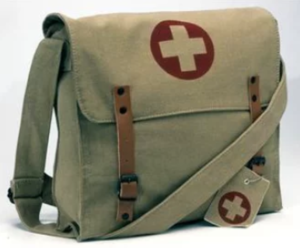 Sequester Survival Kit
Sequester Survival Kit
- Wash your hands! Don't touch your face! Social Distancing!
- Health information about COVID-19 and FSHD.
- Medic Alert card. Download and print this card out, keep it handy and make sure your family or caregiver know where it is. Give it to emergency technicians and care providers if you develop symptoms and need to go to the emergency room. Put your name and contact info on your Bi-Pap or ventilator so that if you bring it with you to the hospital, it won't get misplaced or lost!
- Read and watch this NPR program: No, You Don't Need To Disinfect Your Groceries. But Here's How To Shop Safely.
- Virtual chapter meetings, open to all! Check the Events Calendar.
- Weekly FSHD Radio call-in show on Facebook Live, starting Wednesday March 25 at 9PM ET | 8PM CT | 7PM MT | 6PM PT.
- Connect with your neighbors via https://nextdoor.com/.
- Please contact us if we can be of assistance!
Disclaimer
Information provided by the FSHD Society does not imply an endorsement of any of the drugs, procedures, treatments, or products discussed. Please consult your own healthcare provider about any medical interventions.


